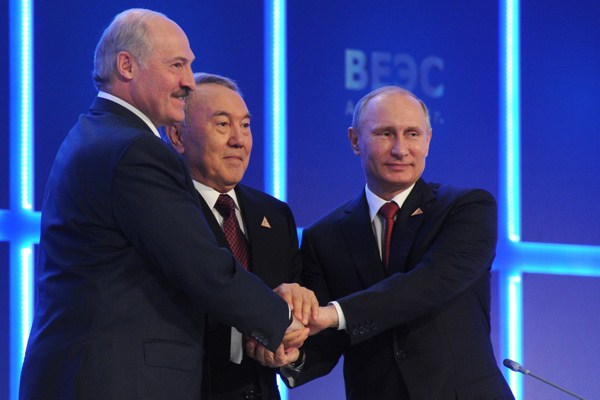On Jan. 1, 2015, Russian President Vladimir Putin’s flagship geopolitical project, the Eurasian Union, formally came into existence. Building on the existing Customs Union between Russia, Belarus and Kazakhstan, the Eurasian Union’s official goals are to enhance its members’ economic prosperity and political influence by promoting the free flow of capital, goods, labor and services, and by coordinating their agricultural, energy, industrial and transportation sectors.
Back in the fall of 2011, when still prime minister, Putin made establishing a Eurasian Union among the former Soviet republics a major theme of his successful presidential campaign. He argued that by coordinating their economic, foreign and other policies, these countries could match integration processes in other regions, such as Europe and North America, and enhance their collective global influence by building “a powerful supranational union capable of becoming one of the poles in the modern world.”
Putin, a well-known fan of the Soviet Union, evidently wanted Moscow to lead another multinational bloc of subordinate states, and his proposal built on previous expressions of renewed Russian ambitions in its so-called near abroad. After Russia’s 2008 war with Georgia, for instance, then-Russian President Dmitry Medvedev explicitly said that Moscow wanted a “sphere of privileged influence” in the former Soviet space. Putin’s integration proposals seemed especially aimed at reining in those former Soviet states that have thus far remained outside Moscow’s control, such as Ukraine and Azerbaijan. In addition, the Eurasian Union aimed to augment Russia’s economic potential by giving it better access to its neighbors’ resources, while also boosting Moscow’s diplomatic “soft power.”

